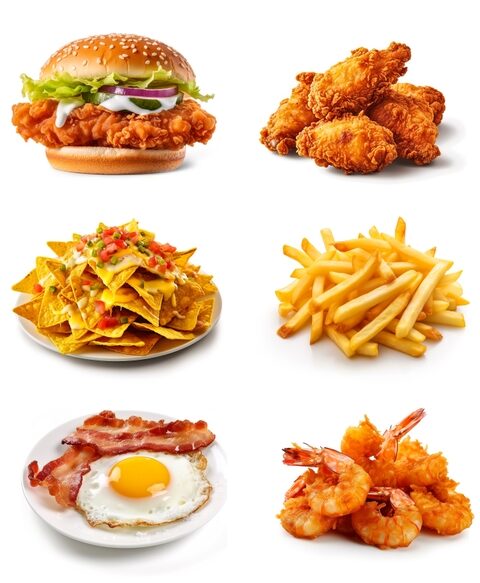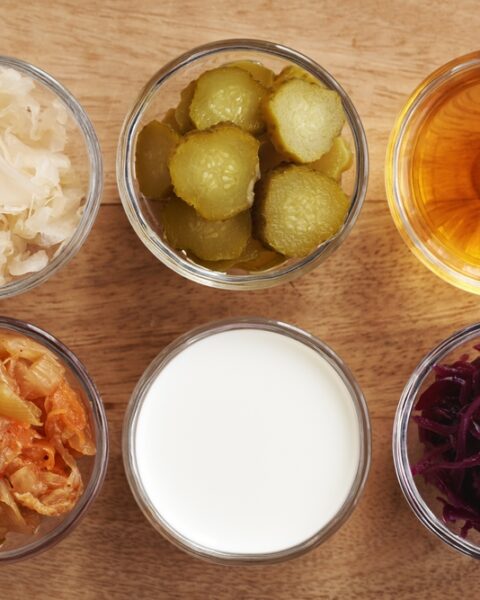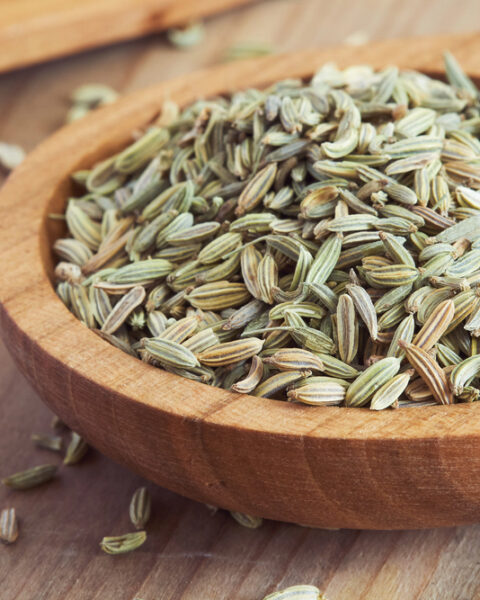Proper nutrition is essential for maintaining your body’s health and energy levels. When you’re not getting enough nutrients, your body sends out signals that can sometimes be subtle or mistaken for other issues. Recognizing these signs early can help you make the necessary dietary changes to restore balance. Pay attention to these common signs that your body may need more nutrition.
Contents
- 1 Persistent Fatigue
- 2 Frequent Illnesses
- 3 Slow Wound Healing
- 4 Brittle Hair and Nails
- 5 Muscle Cramps
- 6 Dry, Flaky Skin
- 7 Cognitive Decline or Memory Issues
- 8 Irregular Heartbeats
- 9 Cravings for Non-Food Items
- 10 Tingling or Numbness in Hands and Feet
- 11 Mood Swings or Depression
- 12 Poor Night Vision
- 13 Slow Growth in Children
- 14 More From RetailShout
- 15 15 Grocery Store Desserts That Aren’t as Good as They Look
- 16 15 Tasty Snacks You Won’t Believe Are Healthy
Persistent Fatigue

Feeling constantly tired despite getting adequate sleep may indicate that your body lacks essential nutrients like iron, vitamin B12, or magnesium. These nutrients play a crucial role in energy production and without them, you may feel drained. Iron deficiency, for instance, can lead to anemia, leaving you fatigued and weak. Additionally, a diet low in complex carbohydrates can cause energy dips because your body isn’t getting enough fuel. Ensuring a balanced diet rich in vitamins and minerals is key to overcoming chronic fatigue.
Frequent Illnesses

If you seem to catch every cold or virus that goes around, your immune system might be struggling due to a lack of nutrients. Vitamins like C and D, as well as zinc, are critical for maintaining a healthy immune system. When your diet lacks these nutrients, it can weaken your body’s ability to fight infections. Including a variety of fruits, vegetables, and fortified foods in your diet can help boost your immunity. Keeping your immune system strong also relies on maintaining an overall healthy and balanced diet.
Slow Wound Healing

Wounds that take an unusually long time to heal may be a sign that your body is not getting enough protein, vitamin C, or zinc. These nutrients are vital for the production of collagen, which is necessary for repairing damaged skin and tissues. If you’re consistently low in these nutrients, even small cuts or scrapes can take longer to recover. Protein deficiency, in particular, can significantly hinder the healing process as it’s needed for cell regeneration. Make sure to include protein-rich foods, citrus fruits, and leafy greens in your diet for better healing.
Brittle Hair and Nails

Weak, brittle hair and nails often signal a deficiency in key nutrients like biotin, vitamin D, or iron. Hair and nails are made primarily of keratin, which requires adequate protein and vitamins to remain strong. If your diet is lacking in these areas, you might notice your hair thinning, breaking easily, or your nails becoming fragile. Incorporating foods rich in biotin, like eggs and nuts, can strengthen both hair and nails. A balanced diet will help maintain their health and appearance.
Muscle Cramps

Muscle cramps, especially in the legs, can be a sign of a magnesium or potassium deficiency. These minerals are essential for muscle function, and when levels are too low, it can lead to painful cramping. Potassium also helps regulate fluid balance in the body, preventing dehydration-related cramps. Including foods like bananas, spinach, and avocados in your meals can help reduce the occurrence of muscle cramps. Additionally, staying hydrated is crucial for preventing these painful spasms.
Dry, Flaky Skin

Dry and flaky skin can often be a result of insufficient intake of essential fatty acids, such as omega-3s, as well as vitamins A and E. These nutrients help maintain the skin’s moisture and elasticity, and without them, your skin may become dull and rough. Omega-3s, found in fish and flaxseeds, are particularly important for keeping the skin hydrated and supple. A lack of vitamins A and E can also cause irritation and scaling. Eating a diet rich in healthy fats and colorful vegetables can help nourish your skin from within.
Cognitive Decline or Memory Issues

If you’re struggling with focus, memory, or mental clarity, it could be a sign of a nutritional deficiency, especially in omega-3 fatty acids, vitamin B12, and antioxidants. Omega-3s are crucial for brain health, while B12 helps produce neurotransmitters that regulate mood and cognitive function. Low levels of these nutrients can lead to brain fog, difficulty concentrating, and memory lapses. Foods like fatty fish, leafy greens, and whole grains can boost your mental clarity. Maintaining proper hydration and a balanced diet supports overall cognitive function.
Irregular Heartbeats

An irregular heartbeat or palpitations may be a sign that you’re deficient in certain electrolytes like magnesium, calcium, or potassium. These minerals are vital for regulating heart function and maintaining normal muscle contractions. A deficiency in any of these can cause your heart to beat irregularly or feel fluttery. To avoid this, ensure you are consuming enough magnesium-rich foods like nuts, seeds, and leafy greens. Calcium and potassium are equally important and can be found in dairy products, bananas, and citrus fruits.
Cravings for Non-Food Items

Unusual cravings for non-food items like dirt, ice, or chalk, known as pica, are often linked to nutrient deficiencies, particularly iron and zinc. These cravings can be a strong indicator that your body is lacking essential minerals needed for proper function. Iron deficiency anemia is commonly associated with pica, where the body tries to compensate for the lack of nutrients. If you experience these types of cravings, it’s important to get tested for nutrient deficiencies and adjust your diet accordingly. Adding iron-rich foods like red meat, beans, and fortified cereals can help correct the deficiency.
Tingling or Numbness in Hands and Feet

A lack of certain vitamins, particularly B12 and B6, can lead to tingling or numbness in the hands and feet. These vitamins are essential for nerve health and function, and prolonged deficiencies can cause nerve damage. If you’re not getting enough B vitamins, you may notice a “pins and needles” sensation in your extremities. Eating more animal products like meat, fish, and eggs can help replenish your B12 levels. Vegetarians and vegans may need to consider fortified foods or supplements to meet their B vitamin needs.
Mood Swings or Depression

Nutritional deficiencies, especially in omega-3 fatty acids, vitamin D, and B vitamins, can affect your mood and mental health. A lack of these nutrients may lead to increased feelings of anxiety, irritability, or depression. Omega-3s play a crucial role in brain function and can help stabilize mood, while vitamin D is known to improve serotonin levels, which affects mood regulation. Regularly consuming foods rich in these nutrients, like fatty fish, eggs, and fortified cereals, can help lift your mood and improve mental well-being.
Poor Night Vision

Struggling to see in low-light conditions or experiencing difficulty driving at night can be a sign of a vitamin A deficiency. Vitamin A is essential for eye health and supports the production of rhodopsin, a pigment in the eyes that helps you see in dim light. Without adequate vitamin A, your vision may become compromised, particularly at night. Eating foods like carrots, sweet potatoes, and leafy greens can improve your vitamin A levels. Regular intake of these foods supports overall eye health and prevents night blindness.
Slow Growth in Children

In children, slow growth or delayed development may indicate a lack of vital nutrients, particularly protein, calcium, and iron. These nutrients are essential for bone growth, muscle development, and overall physical and cognitive maturation. If a child is not growing at the expected rate, it could be due to an insufficient intake of these key nutrients. A well-balanced diet that includes dairy, lean meats, and a variety of fruits and vegetables can promote healthy growth. Early intervention with dietary changes can help a child reach their full growth potential.
This article originally appeared on RetailShout.
More From RetailShout
20 Trader Joe`s Coffees That Coffee Lovers Swear By

Trader Joe’s Decaf Coffee Medium Roast offers all the flavor of a regular cup without the caffeine. This coffee is smooth and mild, perfect for those who want a gentle brew in the evening or need to cut back on caffeine. Read More.
15 Grocery Store Desserts That Aren’t as Good as They Look

It’s hard to resist the tempting look of grocery store desserts, with their glossy frosting and picture-perfect presentation. But sometimes, they don’t live up to their appearance. Read More.
15 Tasty Snacks You Won’t Believe Are Healthy

Who says healthy snacks have to be boring? From savory to sweet, there are plenty of options that not only taste great but also pack a nutritional punch. Read More.






